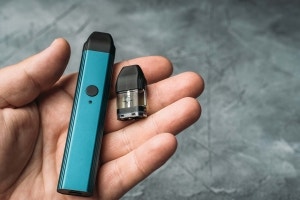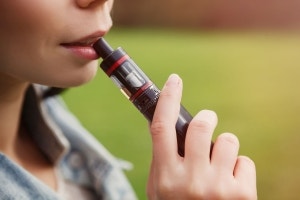Navigating the Halal Status of CBD and CBD Vapes
And can you use CBD during the month of Ramadan?

Cannabidiol, commonly known as CBD, has become a popular wellness trend in recent years. Derived from the cannabis plant, CBD is lauded for its potential health benefits without the psychoactive effects associated with THC. It comes in many forms, including oils, edibles, creams, and vapes, making it accessible and versatile for various needs.
However, as CBD gains traction, questions arise, especially among Muslim consumers who must consider halal dietary laws. One pressing question is whether CBD vapes are halal and if using CBD during fasting is permissible.
Understanding the Halal Concept in Islam and Its Application to CBD
Halal, an Arabic term meaning "permissible," refers to what is allowed under Islamic law. The concept extends beyond food and beverages to encompass all aspects of life, including business practices and personal conduct. For something to be considered halal, it must comply with the guidelines set forth in the Quran and Hadith.
When it comes to CBD, the primary concern is its source and processing. CBD derived from hemp and free of intoxicants like THC is generally considered more permissible. However, the methods used to extract and process CBD, as well as the presence of any non-halal additives, and even the type of CBD product you use, can impact its halal status. Muslim consumers must understand these nuances to make informed decisions.

The Halal Status of CBD Vapes: A Closer Look
While CBD itself may be regarded as halal when sourced appropriately, the situation becomes more complicated when it comes to CBD vapes. Vaping, in general, can pose health risks due to the inhalation of various chemicals found in vape liquids, some of which may not align with Islamic principles of wellbeing and health.
The potential harm associated with vaping raises concerns about the permissibility of using CBD in this form. Thus, even if the CBD is halal, the method of consumption through vaping could detract from its halal status, making it essential for consumers to weigh the health implications before deciding to use CBD vapes.
The Ruling on CBD According to Islamic Scholars
The question of whether CBD is halal has been a topic of discussion among Islamic scholars. While there is no unanimous consensus, many scholars agree that CBD is permissible if it meets specific criteria:
1. Source: The CBD must be derived from hemp, not marijuana, as hemp contains negligible amounts of THC
.
2. Processing: The extraction and manufacturing processes should avoid alcohol or other non-halal substances.
3. Intoxicating Effect: The CBD product must not have any psychoactive effects or contain significant levels of THC, limiting users to CBD Isolate.
Several fatwas (Islamic legal rulings) have affirmed that CBD meeting these conditions can be considered halal. However, as with any religious matter, it is advisable to consult with a knowledgeable scholar or your local Islamic authority for personal guidance.

CBD Oil and Vapes During Ramadan: Fasting Considerations
Fasting during Ramadan is a fundamental pillar of Islam, requiring abstention from food, drink, and other specific activities from dawn until sunset. The question arises whether using CBD, particularly vapes, breaks the fast.
When observing the fast during Ramadan, it is essential to avoid anything that might invalidate the fast, including food and drink from dawn until sunset. CBD oil, similar to CBD vapes, is generally not permitted during these hours. Although CBD may not have psychoactive effects, its consumption could be considered a form of nourishment or intake, which is strictly prohibited during fasting.
The same principle applies to CBD vapes; inhaling any substance during fasting hours can break the fast, regardless of whether it contains intoxicating compounds. Additionally, since CBD vapes may not always be classified as completely halal depending on their ingredients and processing, Muslim consumers should refrain from using them during Ramadan.
For those seeking wellness alternatives, it's best to explore options that align with fasting guidelines and maintain the integrity of one’s spiritual practice. Alternatively, choose to use CBD oil after sundown during Ramadan for its potential relaxation benefits.
The Potential Health Benefits of CBD Vapes
CBD vapes are popular due to their fast-acting nature and ease of use. Vaping allows CBD to enter the bloodstream quickly through the lungs, providing near-instant benefits. Here are some potential benefits associated with CBD vapes that users have reported:
1. Pain Relief: Many users report that CBD helps alleviate chronic pain, making it a natural alternative to traditional painkillers. 2. Anxiety and Stress Reduction: CBD is known for its calming effects, which can help reduce anxiety and stress levels. 3. Sleep Improvement: Some individuals find that CBD aids in improving sleep quality and reducing insomnia.
While these benefits are promising, it is essential to use CBD products judiciously and consult healthcare professionals for personalized advice. CBD is not sold as a medicinal product as there is not yet enough research to show concrete evidence, and therefore should not be used to treat any medical conditions. It is at the user's discretion to try CBD and decide on the benefits.
Conclusion
Navigating the halal status of CBD vapes and their use during fasting requires careful consideration of Islamic guidelines and scholarly opinions. While CBD offers various health benefits, Muslim consumers must ensure the products they use comply with halal standards. When in doubt, seeking advice from knowledgeable Islamic authorities can provide clarity and peace of mind.











